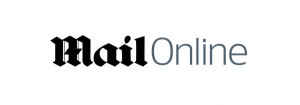
Last week, the British Journal of Photography posted an article explaining that photographer Steve Leachan had discovered that the Daily Mail and Mail Online had delved into his Flickr account and used one of the images therein without his knowledge or permission. Steve had uploaded the image to his Flickr account under an “All-Rights Reserved” notice. Not only that, but it also appears that the watermark on the original uploaded image had been removed using the clone stamp tool.
An update was posted the following day to indicate that photographer Vicky Tuff had been in touch with BJP to inform them that she had suffered from copyright infringement by the Daily Mail. The BJP article was updated again yesterday, on the 18th of April, when Nicholas Smith got in touch to say that one of his images had also been used without permission in the very same Daily Mail article.
This is the latest in a growing number of cases BJP has reported of the Daily Mail taking images and using them without the photographer’s knowledge and / or permission: it’s sickening and infuriating.
Once the bile stopped bubbling and boiling inside me (although that could’ve been the waffles and coffee I had this morning) and I had some time to reflect, one question arose in my mind and is now floating there, dead centre, white on black: why are photographers treated like second class citizens?
If it isn’t our images being used without our permission, without credit and without pay, it’s being hassled by authorities in the street for taking photographs in a public place. As a freelancer, I’ve had my share of horror stories in the past and have heard many from colleagues and fellow photographers. A couple of years ago, I had a most unpleasant experience with a client who I did some work for in exchange for credit and exposure. When it came to it, the client flat out refused to credit me for my work. I informed them that I wouldn’t be releasing the images to them if they weren’t happy to put any kind of credit on the images and an angry torrent of abuse ensued from said client.

With copyright law being so gleefully abused by major organisations, it's important that we stand up for ourselves.
Add that to the dozens upon dozens of stories I’ve heard from some of my peers about companies offering an absolute pittance for lifetime rights to an image and then failing to understand why they’ve refused the offer and it becomes distressingly apparent that photography and photographers are seemingly held in very low regard by the rest of society. I’ve had people come up to me in the street when I’m shooting architecture and ask, with a bewildered expression on their face, what it is I’m doing. This usually happens when I’m not pointing the camera directly at a landmark. I tend to reply with “I’m taking a photograph”, which tends to invoke an incredulous “of what?!” response.
With our list of aggressors including authorities, (certain) newspapers, businesses and the general public, it’s a wonder any of us make money, especially when combined with the current economic climate. To bring this slightly ranty tangent back to the original copyright theft issues, don’t resign yourself to the fact that “this is just the way it is” when it comes to what happens to and with your images. Don’t work for free and don’t be afraid to charge for your services. It may feel strange to turn work down from time to time, when the client is offering too little, or indeed, no money, but working for free and letting your work be used without your permission has a knock-on effect to all self-employed photographers, because it drives the value of photography even further down: I don’t remember any of my photography kit being free.
Regardless of whether it’s a high profile case like the Daily Mail’s atrocious behaviour or a small, personal issue, don’t be afraid to kick up a stink if your images are being used without credit and without your permission. It’s probably a bad idea to immediately go steaming in because it’s not always the case that people are deliberately avoiding crediting you: smaller businesses or people unused to dealing with photography might just need a friendly reminder of the process (initially, at least). It’s when the big guns who should know better start taking the mick that we need to take action.
In short, if we truly care about what we do, we must educate people about the value of photography. Make yourselves heard.





